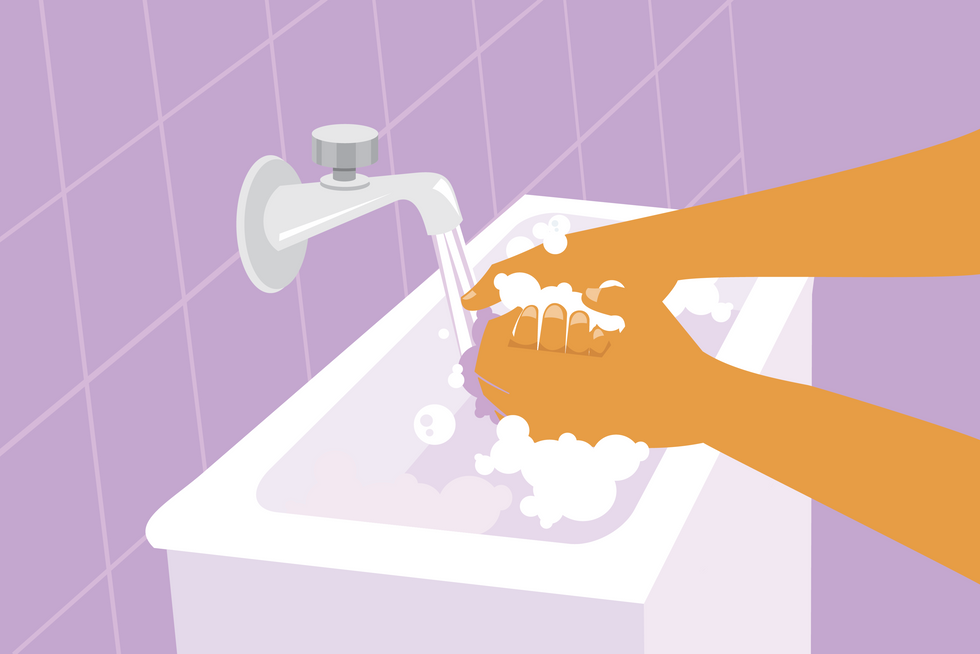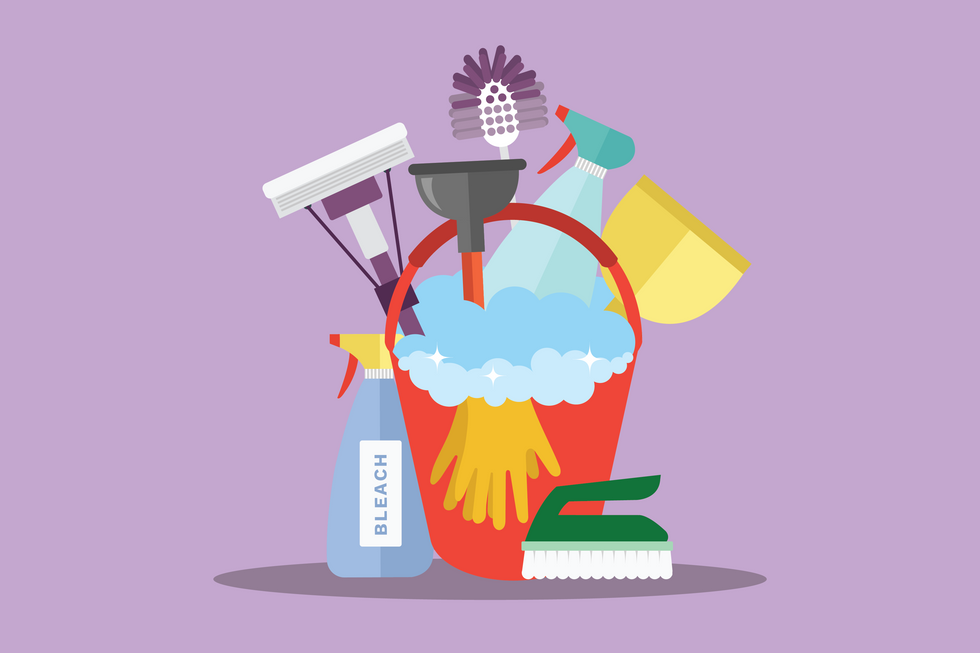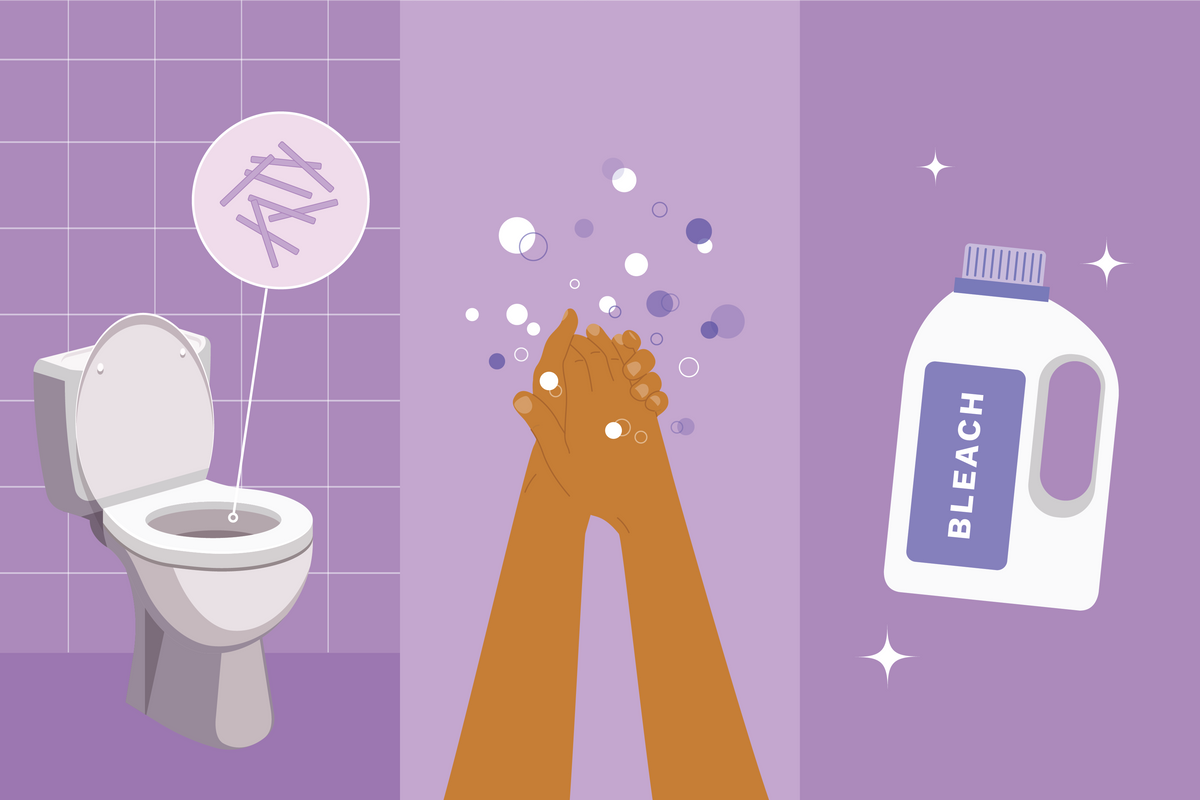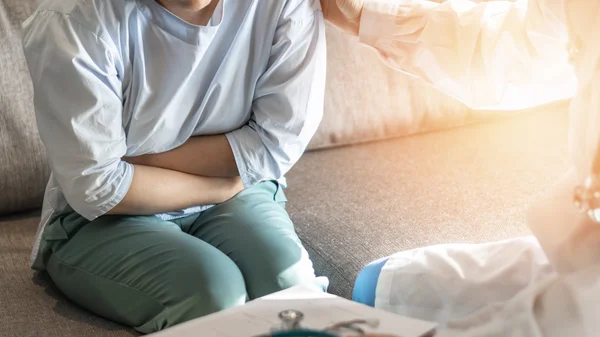C. diff is the name of a common, easily transmittable infection caused by the bacterium Clostridioides difficile. The infection causes your colon (bowel) wall to become inflamed, resulting in severe, watery diarrhea. Left untreated, it can cause a serious complication called toxic megacolon.
C. diff affects about 250,000 people in the United States every year. Some people get it only once in their lifetime, but if you have a C. diff infection, there is up to a 1 in 4 chance you might relapse (the same infection returns) or get it again within eight weeks. People at the highest risk for a C. diff infection are those who take or have recently taken antibiotics, especially if they have a weak immune system.
The bacteria live in feces (poop), and in soil and water. They spread easily and can live for a long time on hard and soft surfaces, like linens and clothing. If someone who has C. diff on their hands touches a door handle and you touch it after, the bacteria transfer to your hand. They then can enter your gastrointestinal system if you touch your mouth or handle food before washing your hands.
Protect yourself and others from getting a C. diff infection in a healthcare setting

If you are a patient in a hospital, skilled nursing facility or rehabilitation center, you are at higher risk of getting a C. diff infection — not just because you likely have a weak immune system from the condition that put you in the facility but also because of the number of people you may encounter while you’re there.
Here are some steps you can take to lower the risk of getting C. diff in a healthcare facility:
- Make sure all healthcare workers and visitors wash their hands before they touch you and your things. If you don’t see them wash their hands, ask them to do so.
- Wash your hands well with soap and water every time you use the bathroom. If you use a bedside commode, ask to be transported to a sink to wash your hands or use a waterless hand sanitizer.
- Wash your hands before eating or drinking. If you can’t get to a sink, ask the staff or a friend to supply you with a waterless hand sanitizer to use while you are in bed or sitting in your chair.
- Allow cleaning staff access to your environment. Clear everything off the bedside table or nightstand, and remove clothing or linens from the bedside rails so they can be wiped down.
Patients with a diagnosed C. diff infection should not share a room with someone who does not have the infection. If you do share a room and your roommate contracts C. diff, ask to be moved.
Stop the spread of C. diff at home

C. diff doesn’t just affect people in healthcare facilities. It can happen at home, too.
Here are steps you can take to reduce the risk of spreading C. diff at home:
- If your home has a second bathroom, reserve one for the person with the C. diff infection to limit exposure to others.
- If your home has only one bathroom, make sure the toilet seat, flusher, faucets, light switches and doorknob are cleaned with a bleach-based cleaner after each use.
- If the infected person is immobile, keep waterless hand sanitizer within reach.
- Clean common home surfaces (door knobs, light switches, fridge handles, etc.).
- Wash clothing (especially underwear), towels and linens separately and in the hottest water possible.
- Wear disposable gloves while handling clothing and linens, especially if the person is incontinent (loses control of their bowels). Wash your hands after removing the gloves.
- Shower with soap to remove C. diff that may be on the skin.
This educational resource was created with support from Seres Therapeutics and Nestle Health Science.
- Doctors Said It Was Probably Just a Stomach Bug — It Wound Up Being C. Diff ›
- 11 cosas que puedes hacer para reducir el riesgo de contagio de la C. difficile - HealthyWomen ›
- Lo que debes saber sobre la C. difficile - HealthyWomen ›
- Q&A: What Is C. Diff? - HealthyWomen ›







